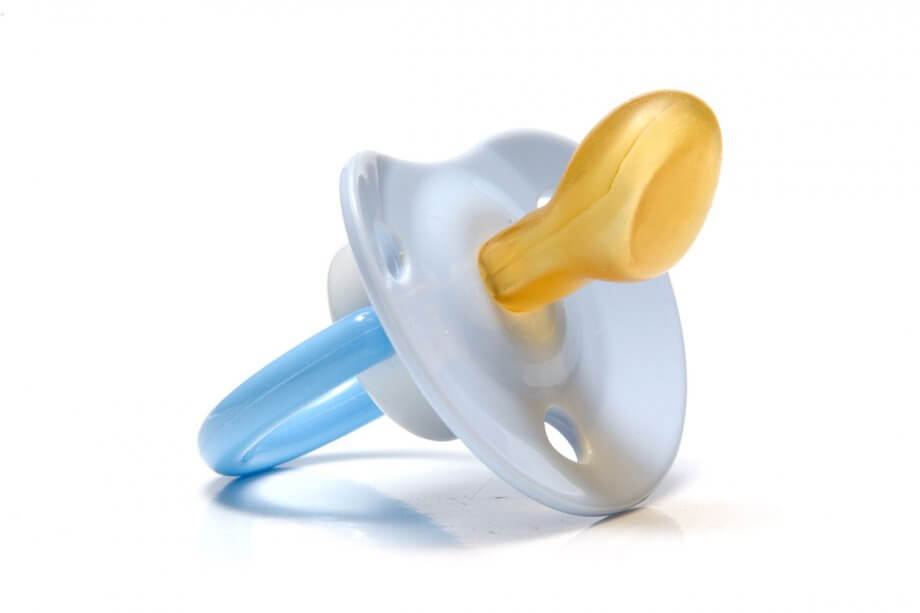When your baby starts teething, it can be hard on you as well as them. They may wake more often at night, cry or fuss more, and generally seem unlike their usual self. Teething can disrupt healthy sleeping patterns and make life stressful for parents, baby, and anyone else in the household. Here are some tips for coping with teething.
How to Figure Out if Teething is the Problem
With such a wide variety of symptoms and signs of teething, it can be difficult to figure out whether or not teething is even the problem. Signs of teething include:
- Drooling
- Chewing on objects
- Irritability or crankiness
- Sore or tender gums
- Low-grade rectal fever of 99 F (37.2 C)
- Frequent waking at night (outside of normal sleeping habits)
You may notice these symptoms, but not realize the reason behind them until that first tooth pops through the gums. Low-grade fevers, fussiness, and frequent waking can also indicate illness such as an ear infection. Babies tend to drool and chew on things regularly. Check for teething by running your fingers over your baby’s gums. If you feel a tooth just below the surface, or if touching the gums causes an increase or decrease in fussiness, you likely have a teething baby on your hands.
What is a Normal Age for Teething?
Babies tend to start teething around 6 months of age, but they can start as early as 2-3 months or as late as 12 months. This is another factor that contributes to the mystery around diagnosing teething.
Some Tips for Soothing Teething Symptoms
You can’t stop, slow, or hurry teething. A baby’s teeth will come in when they do, and all you can do is attempt to soothe the symptoms.
- Cool the gums. Give your baby something cold to chew on, like a teething ring that has been stored in the refrigerator (not the freezer). You could also try a clean washcloth soaked in cold water or a cold spoon.
- Give hard foods. A slice of cold cucumber or a large piece of cold carrot would be good for gumming on, but watch carefully in case baby bites off any chunks big enough to choke on.
- Serve frozen fruits or veggies. Cut them up small to avoid a choking hazard, or use frozen peas that are already small.
- Teething biscuits. All sorts of baby snacks have been invented for teething, and teething biscuits are designed to be tasty and chewable, and will dissolve gradually as baby chews.
- Frozen waffle. Another safe option is a frozen waffle, which starts out hard and cold to sooth gums, but dissolves into soft, manageable pieces.
- Vibrating teethers. Vibrations will also soothe a baby’s gums, and vibrating teething toys have been invented to provide this remedy.
- Rub your baby’s gums. Some gentle rubbing can help to soothe your baby’s gums. Use a clean finger or a bit of gauze and gently run it over the gums.
- Administer pain relievers. Sometimes the only way to soothe teething pain is with pain medications like acetaminophen (Tylenol) or ibuprofen (Advil or Motrin). Be sure to check with your doctor or dentist first, and pay careful attention to dosing guidelines. These are especially useful at night to help your baby sleep.
- Manage the drool. The extra drooling can cause irritation and possibly a rash if not properly managed. Use a bib to soak up extra drool and change it every few hours (just remove it before putting your baby down for naps or bed). Wipe their chin and neck gently, keeping the neck folds clean and dry. Prevent or treat a rash with cream or lotion.
- Avoid medications containing benzocaine or lidocaine. These are potentially harmful or even fatal to infants.
When to Call the Doctor
Teething is not generally a reason to call your baby’s pediatrician. If your baby has a fever higher than 101 degrees Fahrenheit or any other unusual symptoms like diarrhea, call your doctor in case your baby has an illness that may require treatment.
Caring for Your Baby’s New Teeth
Once even one tooth pops through the gums, it’s time to start cleaning it. It’s really a good idea to run a wash cloth or soft baby toothbrush over your baby’s gums even before any teeth appear. But once they do, a soft-bristled toothbrush can be used to brush the teeth. Some baby toothbrushes are even designed to fit over your finger with rubber bristles on one side. You can use mild baby toothpaste - typically fluoride-free is best until they learn to spit (around age 2-3).
When Should My Baby See a Dentist?
Make the first dental checkup sometime between the appearance of your baby’s first tooth and their first birthday. This first appointment is a very simple visual exam that has a double benefit of familiarizing your child with the dental office. This helps to reduce dental related anxiety as they age and tends to lead to a lifetime of better oral health as a result. More in-depth cleanings should usually start somewhere around the age of 3. Your family dentist will recommend the best time to start professional dental care.
McDonald Family Dentistry sees patients of all ages from the first appointment all the way through to adulthood. With flexible hours and evening appointments, it’s easy to make dental care fit into your schedule. Call to make your baby’s first dentist appointment today: 408-779-9335 or request an appointment.
